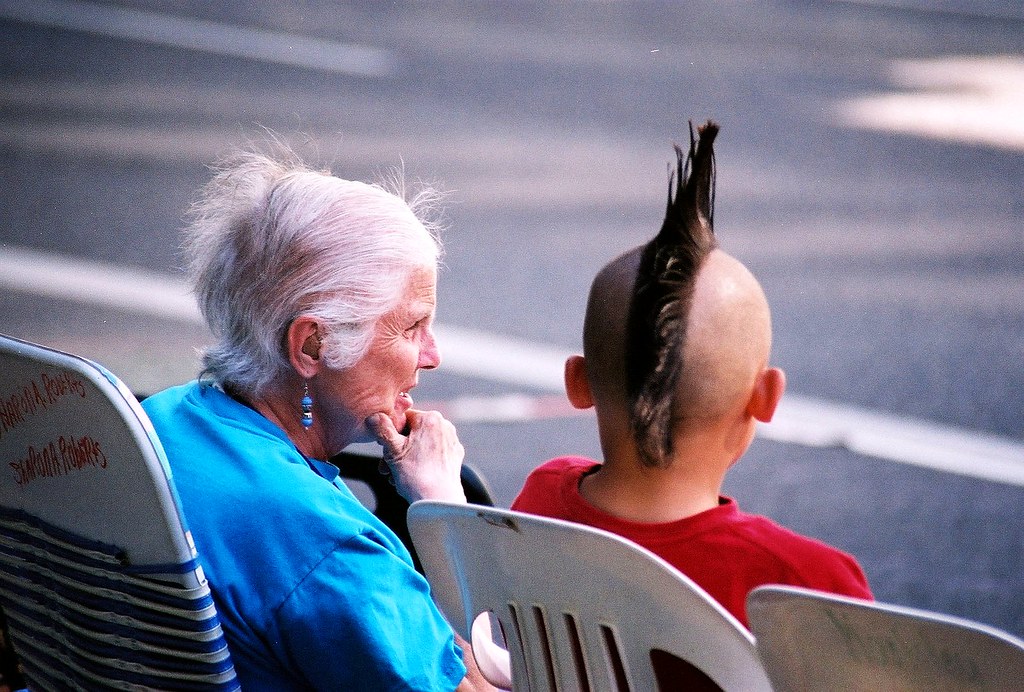The gap between old people and young boys and girls is called the generation gap. While the young people are inexperienced, rash and impatient the elders are endowed with wisdom, prudence and caution. This gap between the two generations is not a new phenomenon. It has existed since time immemorial.
The people belonging to the older generation always wonder as to what has gone wrong with the new generation. They feel that during their time, young boys and girls were better behaved, more obedient, and had greater respect for their elders. They feel that a lack of respect for the old will bring ruin and spell disaster for the young. Young people, on the other hand, feel that they are capable enough to learn on their own rather than lean heavily on the older generation for any guidance. Young people do not like to be spoon-fed by their elders.
The gap between the old and the new generations is widening day by day due to various reasons. First of all, the young people feel that the present system of education has little relevance to the realities of life. It is not job- oriented. The result is that even after completing their schooling, they are not able to find any employment. They feel highly disillusioned.
ADVERTISEMENTS:
Secondly, life has become so busy and fast that parents find little time to devote to their children. Efforts to promote intimacy and understanding between the old and the young are lacking.
Thirdly, the young also find that there is a difference between what they are expected to do and what is actually happening in the country. The talk of duty, dedication, morality, etc. leaves the young in a quandary. Young people are not prepared to follow whatever their elders tell them. When the young people find that corruption has entered into every sphere of life, they feel disgusted. They fight against social and economic injustice. They demand a change.
In India, tradition is still dominant. Tradition kills the initiative of younger generation. In order to express their disenchantment with the existing state of affairs, young people often resort to violence. They wear what they like. They behave in a very unconventional manner. They have no respect tradition, custom, manners etc. They develop an aversion to hard work.
ADVERTISEMENTS:
The generation gap has widened to such an extent that the old and the young people appear to be living in two separate worlds without any interaction. In order to bridge this generation gap, elders should adopt a more sympathetic approach towards the young, and try to understand the emotions, the aspirations and the problems of the young. The youth should realise that they have no experience of life. They should, therefore, value the advice and counsel of the elders. If the youth have any difference of opinion, they should put across their viewpoint before the elders in a very polite and respectful manner.
In the western countries of Europe and America, the generation gap is so much that the young and the old do not like to live together. The young people start living separately as soon as they are able to earn their livelihood. Similarly, the old people also start living separately in their own houses or in Pensioner Houses or old age Homes in their old age. Thus this generation gap results in the break-up of homes and joint families.
Although under the influence of the western education the problem of generation gap is also creating a lot of problems in India, yet its effect is still limited in our country due to the influence of the joint family system prevailing in India. There are definitely a lot of advantages in the joint family system. Therefore, we should not follow the western system blindly at the cost of the well-tried Indian social and family tradition.
But this does not mean that the youth are always at fault. The real meaning of ‘Generation Gap’ is the lack of understanding between old and new generations. It should be the duty of both generations to try to understand and respect one another’s views. Only then this problem can be solved.

